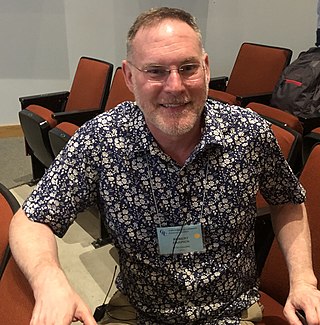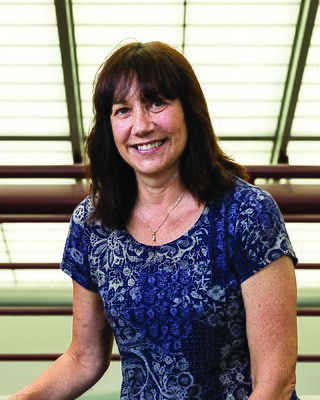Related Research Articles

John Kuriyan is the dean of basic sciences and a professor of biochemistry at Vanderbilt University School of Medicine. He was formerly the Chancellor's Professor at the University of California, Berkeley in the departments of molecular and cell biology (MCB) and chemistry, a faculty scientist in Berkeley Lab's physical biosciences division, and a Howard Hughes Medical Institute investigator. He is a member of the National Academy of Sciences and he has also been on the Life Sciences jury for the Infosys Prize in 2009, 2019 and 2020.

Nicholas A. Kotov is the Irving Langmuir Distinguished Professor of Chemical Sciences and Engineering at the University of Michigan in Ann Arbor, MI, USA. Prof. Nicholas Kotov demonstrated that the ability to self-organize into complex structures is the unifying property of all inorganic nanostructures. He has developed a family of bioinspired composite materials with a wide spectrum of properties that were previously unattainable in classical materials. These composite biomimetic materials are exemplified by his nacre-like ultrastrong yet transparent composites, enamel-like, stiff yet vibration-isolating composites, and cartilage-like membranes with both high strength and ion conductance.
Timothy P. Lodge is an American polymer scientist.

Robert Eric Betzig is an American physicist who works as a professor of physics and professor of molecular and cell biology at the University of California, Berkeley. He is also a senior fellow at the Janelia Farm Research Campus in Ashburn, Virginia.
Lawrence Que Jr. is a chemist who specializes in bioinorganic chemistry and is a Regents Professor at the University of Minnesota, Twin Cities. He received the 2017 American Chemical Society (ACS) Award in Inorganic Chemistry for his contributions to the field., and the 2008 ACS Alfred Bader Award in Bioinorganic Chemistry.
Michael F. Hochella, Jr. is an American geoscientist and currently a university distinguished professor (Emeritus) at Virginia Tech and a laboratory fellow at Pacific Northwest National Laboratory. He is a Fellow of the American Association for the Advancement of Science, Royal Society of Chemistry, Geochemical Society, European Association of Geochemistry, Mineralogical Society of America, International Association of GeoChemistry, Geological Society of America and American Geophysical Union. His interests are nanogeoscience, minerals, biogeochemistry and geochemistry. Currently among greater than 24,000 citations, his highest cited first-author paper is Nanominerals, mineral nanoparticles, and earth systems at over 1,000 citations, and published in the journal Science in 2008, and his highest cited co-authored paper is Nanotechnology in the real world: Redeveloping the nanomaterial consumer products inventory at over 2,100 citations, and published in the Beilstein Journal of Nanotechnology in 2015, according to Google Scholar. He is a former President of both the Geochemical Society and the Mineralogical Society of America. He is also the Founder and former Director of NanoEarth, a node of the National Nanotechnology Coordinated Infrastructure (NNCI), an NSF-funded network of 16 centers spread throughout the United States serving as user facilities for cutting edge nanotechnology research. NanoEarth is part of Virginia Tech's Institute for Critical Technology and Applied Science (ICTAS), and headquartered in Blacksburg, Virginia. Hochella has won many honors, medals, and awards for both research and teaching, including the Dana Medal of the Mineralogical Society of America, the Clair C. Patterson Medal of the Geochemical Society, the Geochemistry Division Medal of the American Chemical Society, and the Virginia Outstanding Faculty Award, the highest honor for faculty in the Commonwealth of Virginia.
Zahra Fakhraai is an Iranian-Canadian materials scientist who is a Professor of Chemistry at the University of Pennsylvania. Fakhraai does research focused on glass transition, nonlinear optics, nanoparticle plasmonics, and polymer physics. She studies the impact of nanoconfinement on the structure of materials. She was awarded the 2019 American Physical Society John H. Dillon Medal. Fakhraai was one of the researchers to start laying the ground work to better understand the optical properties of glass.

Donald L. Sparks is an American soil scientist, currently Unidel S. Hallock duPont Chair of Soil and Environmental Chemistry, Francis Alison Professor, Director, Delaware Environmental Institute, University of Delaware, and Hagler Fellow in the Hagler Institute for Advanced Study at Texas A&M University.
Nancy Sarah Goroff is an American organic chemist who formerly served as chair of the chemistry department at Stony Brook University. Her research investigates conjugated organic molecules, including polymers, halocarbons and buckyballs. During the 2020 United States elections Goroff ran to represent New York's 1st congressional district, and was defeated by the incumbent, Lee Zeldin.

Robert William Carpick is a Canadian mechanical engineer. He is currently director of diversity, equity, and inclusion and John Henry Towne Professor in the Department of Mechanical Engineering and Applied Mechanics at the University of Pennsylvania. He is best known for his work in tribology, particularly nanotribology.
Stephanie Lee Brock is an American chemist who is professor of inorganic chemistry at Wayne State University. Her research considers transition metal pnictides and chalcogenide nanomaterials. She is a Fellow of the American Association for the Advancement of Science and the American Chemical Society.

Peter R. Buseck is a Regents Professor in the School of Molecular Sciences (SMS) at Arizona State University (ASU). He is a pioneering researcher in the application of transmission electron microscopy to mineralogy, meteoritics, fullerenes and atmospheric chemistry. In 2019 Buseck was awarded the Roebling Medal, the highest award of the Mineralogical Society of America. The scientific journal Nature recognized Buseck's 1978 paper as a milestone in crystallography.

Erika L F. Holzbaur is an American biologist who is the William Maul Measey Professor of Physiology at University of Pennsylvania Perelman School of Medicine. Her research considers the dynamics of organelle motility along cytoskeleton of cells. She is particularly interested in the molecular mechanisms that underpin neurodegenerative diseases.
Linda Jean Broadbelt is an American chemical engineer who is the Sarah Rebecca Roland Professor and associate dean for research of the McCormick School of Engineering and Applied Science at Northwestern University. Her research considers kinetics modeling, polymerization and catalysis.
Haimei Zheng is a Chinese-American materials scientist who is a senior scientist in Materials Sciences Division at the Lawrence Berkeley National Laboratory. She is an adjunct professor in Department of Materials Science and Engineering at the University of California, Berkeley. Her research considers the nucleation, nanoscale materials transformations, and dynamic phenomena at solid-liquid interfaces, which she studies by developing the advanced in situ electron microscopy techniques. She is a Fellow of the Materials Research Society.

Karren L. More is an American materials scientist who is the Director of the Center for Nanophase Materials Sciences at the Oak Ridge National Laboratory. Her research considers advanced electron microscopy as a probe to understand the structure and chemistry of emerging materials. More is a Fellow of the American Ceramic Society and Microscopy Society of America.
Angus Ian KirklandFInstP FRSC FRMS is the JEOL Professor of Electron Microscopy at the Department of Materials, University of Oxford. Professor Kirkland specialises in High-resolution transmission electron microscopy and Scanning transmission electron microscopy.
Linda A. Peteanu is an American chemist who is a professor and head of the department of chemistry at Carnegie Mellon University. Her research considers the steady state and transient photophysics of conjugated molecules.
Christine D. Keating is an American scientist who is the Shapiro Professor of Chemistry at Pennsylvania State University. Her research involves colloid and interface chemistry for biology and materials science.
Siobhan Mary Brady is a Canadian molecular biologist who is a professor of Plant Biology at the University of California, Davis. Her research considers how plant roots experience their surrounding environment, with a focus on understanding the impact of climate change. Brady was elected Fellow of the American Association for the Advancement of Science in 2023.
References
- ↑ Penn, Rona Lee (1998). Growth and phase transformations: Insights from hydrothermal coarsening experiments using nanocrystalline TiO₂. OCLC 609182928.
- ↑ "Penndamonium". www1.chem.umn.edu. Retrieved 2021-02-28.
- ↑ "McKnight Presidential Fellows | Scholars Walk". scholarswalk.umn.edu. Retrieved 2021-02-28.
- ↑ "Professor R. Lee Penn - Research". sites.google.com. Retrieved 2021-02-28.
- ↑ "Multimedia Gallery - R. Lee Penn of the University of Minnesota department of chemistry. | NSF - National Science Foundation". www.nsf.gov. Retrieved 2021-02-28.
- 1 2 "Department of Chemistry". www1.chem.umn.edu. Retrieved 2021-02-28.
- ↑ Flynn, Leslie; Johnson, Page; Penn, R. Lee (June 2007). "Building a Successful Middle School Outreach Effort: Microscopy Camp". Journal of Chemical Education . 84 (6): 955. Bibcode:2007JChEd..84..955F. doi:10.1021/ED084P955. ISSN 0021-9584. Wikidata Q105726612.
- ↑ "Collegiate awards | College | College of Science and Engineering". cse.umn.edu. Retrieved 2021-02-28.
- ↑ "Horace T. Morse-University of Minnesota Alumni Association Award for Outstanding Contributions to Undergraduate Education | Scholars Walk". scholarswalk.umn.edu. Retrieved 2021-02-28.
- ↑ "2015 ACS Fellows". cen.acs.org. Retrieved 2021-02-28.
- ↑ "Collegiate awards | College | College of Science and Engineering". cse.umn.edu. Retrieved 2021-02-28.
- ↑ "Lee Penn". 500 Queer Scientists. Retrieved 2021-02-28.